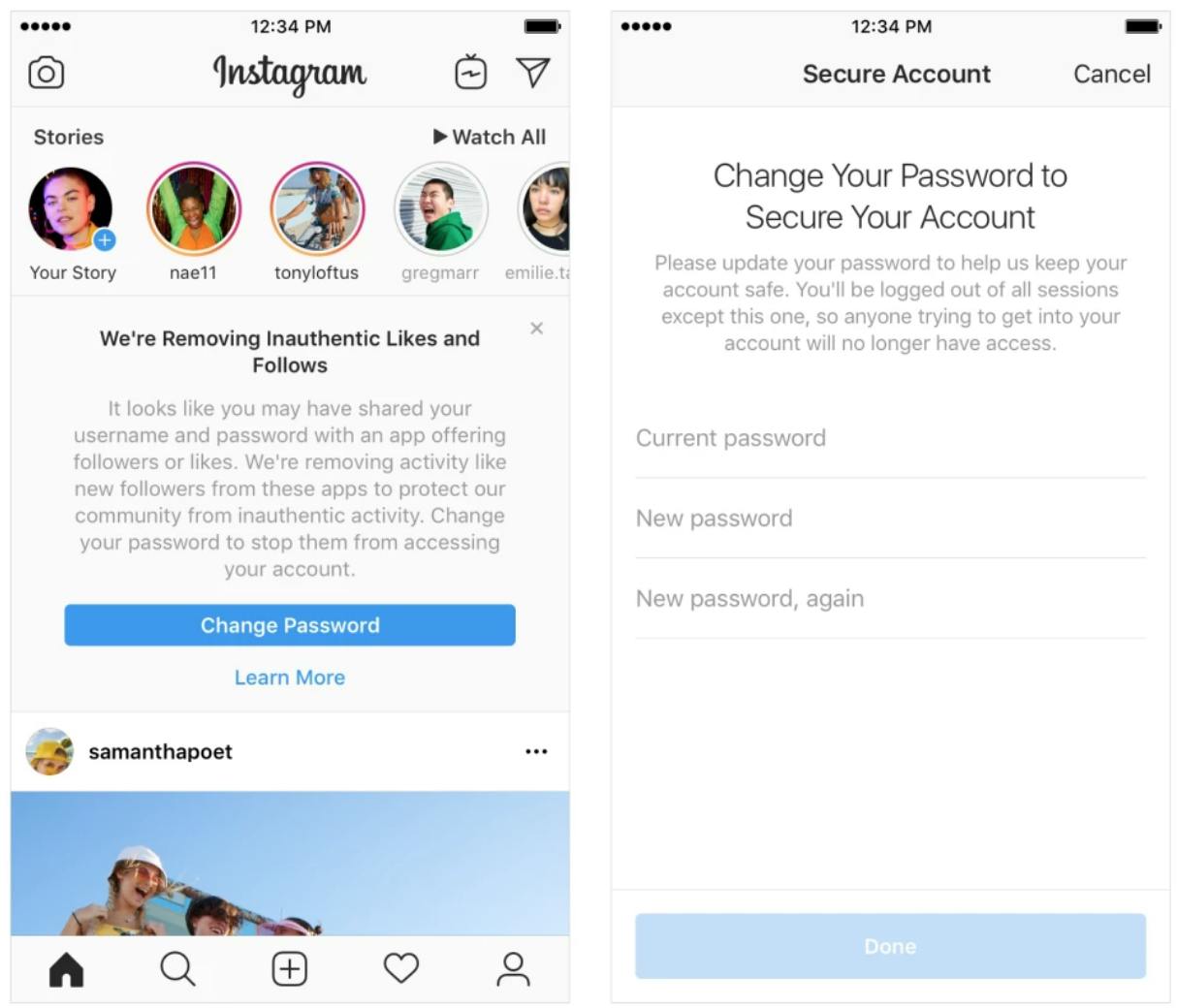Instagram hit 1 billion users in June, and with great power comes great responsibility. In a statement issued on Monday, the photo and video-sharing app promised its community “real experiences and genuine reactions” amid third-party applications falsely juicing the numbers.
“Starting today, we will begin removing inauthentic likes, follows and comments from accounts that use third-party apps to boost their popularity. We’ve built machine learning tools to help identify accounts that use these services and remove the inauthentic activity,” Instagram wrote.
According to siliconANGLE, a data-driven digital platform, fake likes and followers are at a tipping point and easy to acquire with simple Google searches. You can get 5,000 followers for $39.95, it notes.
Instagram reiterates that those accounts found in breach of community guidelines and terms of use will be alerted to change their passwords to protect them from these third-party apps. The company says that those users who continue to use these third-party apps that help build fake followers “may see their Instagram experience impacted.”

As Techcrunch notes, the question now for Instagram is whether it’s also going to target services selling fake followers that appear to be analytics tool for measuring audience size. Techcrunch asked regarding the matter and an IG spokesperson said, “Ads are also subject to our Community Standards, which prohibit spammy activity like collecting likes, followers, etc. — so you are correct that ads promoting these services violate our policies. Please feel free to report them if you see them.”
Instagram wants to have a “vibrant community where people can connect and share in authentic ways,” and this is a PR-friendly move for the tech giant to give users protection against misinformation and fraudulent activities.
H/T BBC

